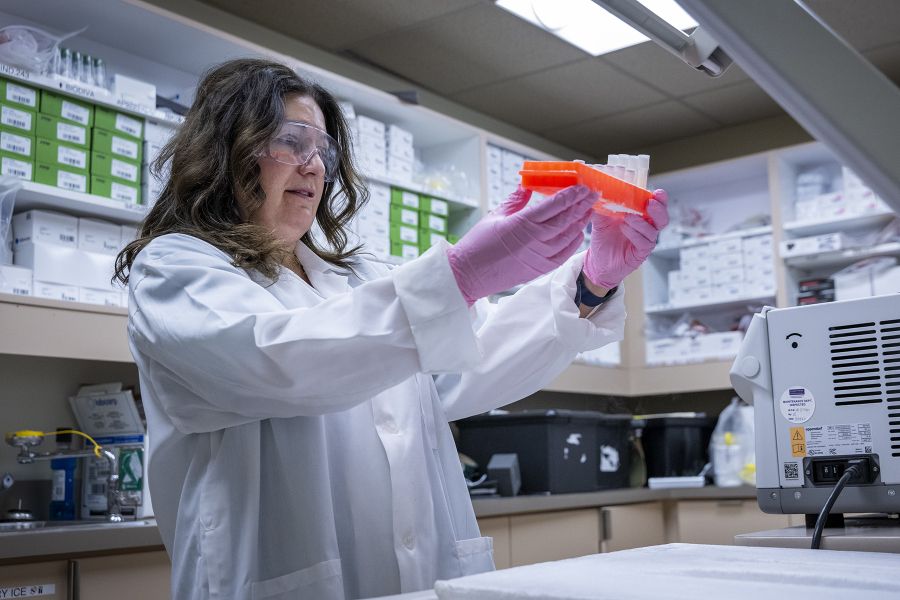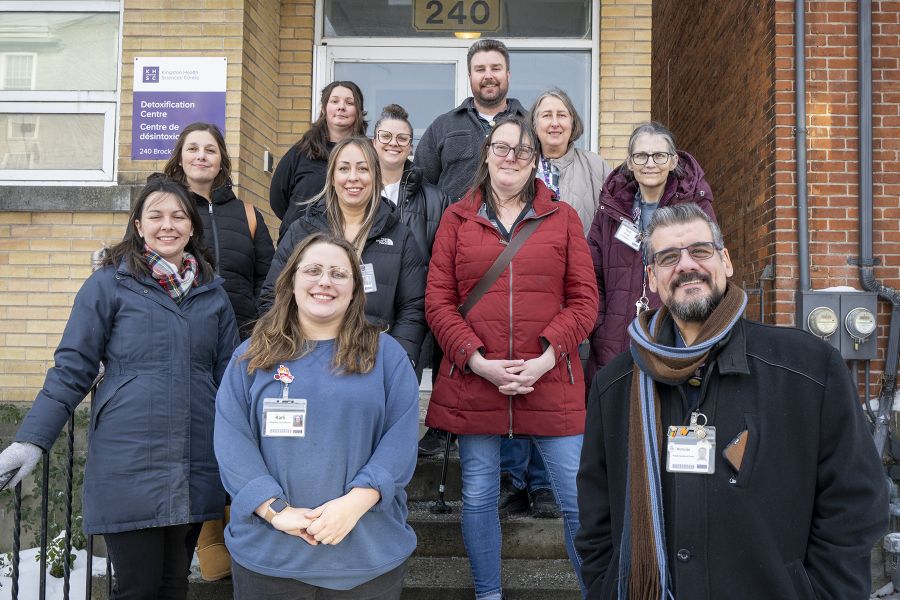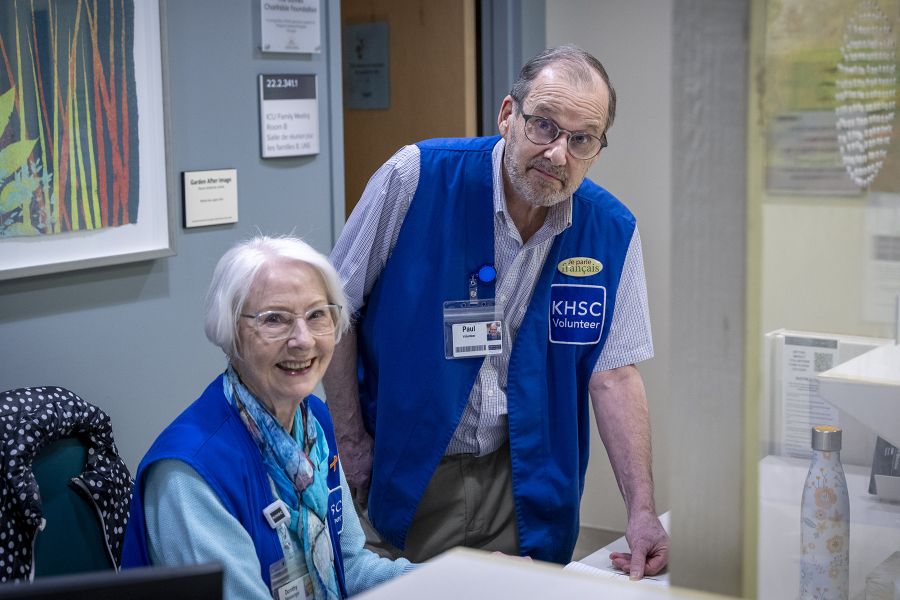Effective immediately masking is required for everyone when present on all inpatient units, in the Emergency Department (ED), the Urgent Care Centre (UCC), and the Children’s Outpatient Centre (COPC).

They aren’t the fancy piece of high-tech equipment you might expect to see rolling through an intensive care unit, but the two refurbished dressers now in use on Kidd 2 are making a big difference for some families that spend time on the unit. They are compassionate care carts and they come stocked with things that people might need when they are with a family member who is receiving end-of-life care.
“When a family knows their loved one is nearing the end of their life, they often want to stay at the bedside at all times and one of these carts can help support them through this difficult time,” says Nicole Valade, Program Manager of the Kidd 2 ICU. “It was a grassroots idea on our unit that we felt would contribute to Patient- and Family-Centred Care.”
Each cart is stocked with a variety of snacks and drinks, including a coffee and tea maker on the top. They also include homey touches such as ceramic mugs, soaps, tooth brushes, soft tissues, and face and hand towels.
“The carts help put people at ease as they look like a familiar piece of furniture you would find in someone’s home,” says RN Julia John. “The supplies inside are there to help family members stay comfortable. Many people are also not from Kingston and they may end up staying at the bedside for many long hours.”
The carts are topped up regularly with supplies donated by staff and physicians on the unit. Many families who have used the compassionate care carts in the past also send in donations.
“I often receive lovely letters from families expressing their gratitude for the compassion received from staff and they want to make a contribution,” says Valade.
The unit also gets a lot of good feedback about the journals they put inside each cart for families to write in. The idea originally came from a patient and family feedback forum held by the unit and they are a way for family members to share their thoughts and express their feelings and this helps many people find some closure.
The compassionate care carts also come equipped with a purple butterfly poster that can be put on the wall just outside the room. The butterfly is a symbol that lets the staff nearby know that the family is requesting quiet in the area.
“In a large 33-bed ICU like ours, there are always a lot of people working and some noisy medical equipment so it can get a bit loud at times. The butterfly lets everyone know that the family inside the room is with a patient receiving end-of-life care and that some extra quiet would be appreciated,” says Valade.
At the moment, the two compassionate care carts in the ICU aren’t the only ones on the go in the hospital. There is a similar one in action up on Kidd 9 and our Emergency Department is looking into the idea as well.
“For nurses in the ICU, a big part of the job is looking out for the patient’s family and encouraging them to take care of themselves,” says Valade. “These carts are a great example of how we can partner with our patients and families to come up with simple solutions that benefit everyone.”
Gallery


Shelley Thomas, Kidd 2 ICU Unit Clerk, checks the supplies in one of the compassionate care carts created by staff and physicians to support families spending long hours at the bedside.



